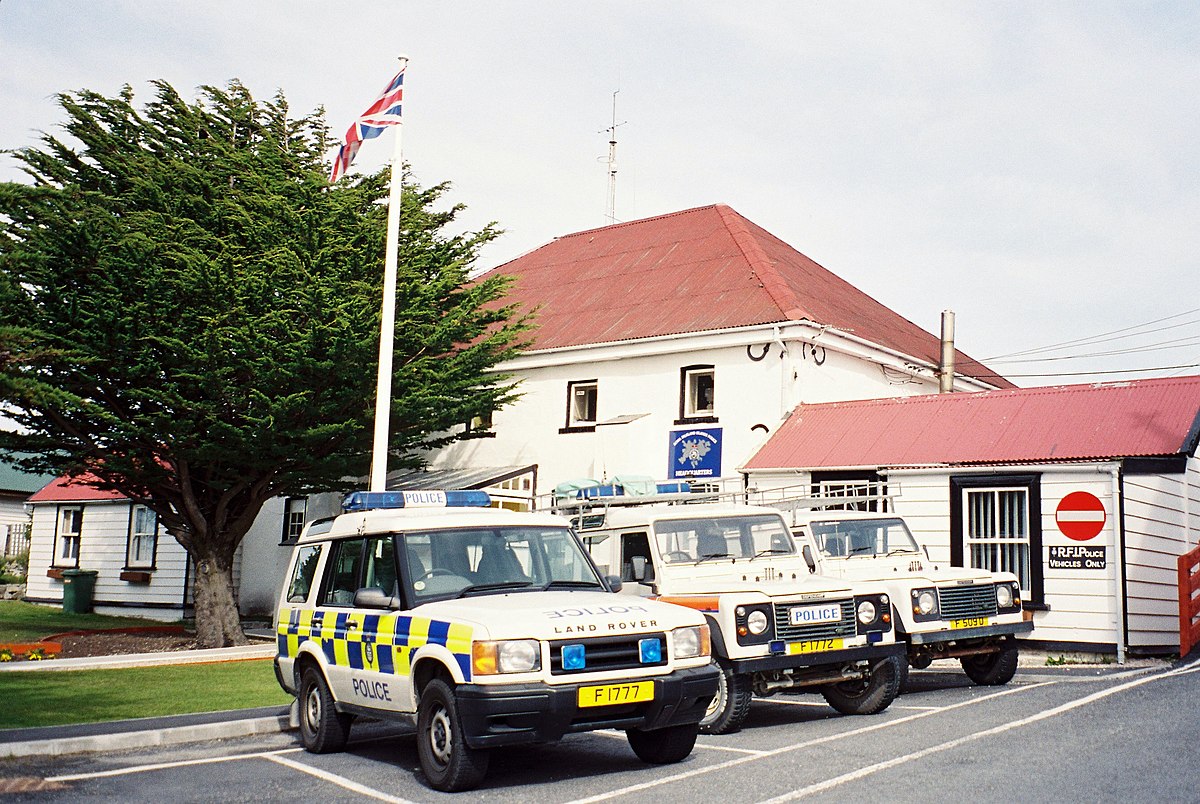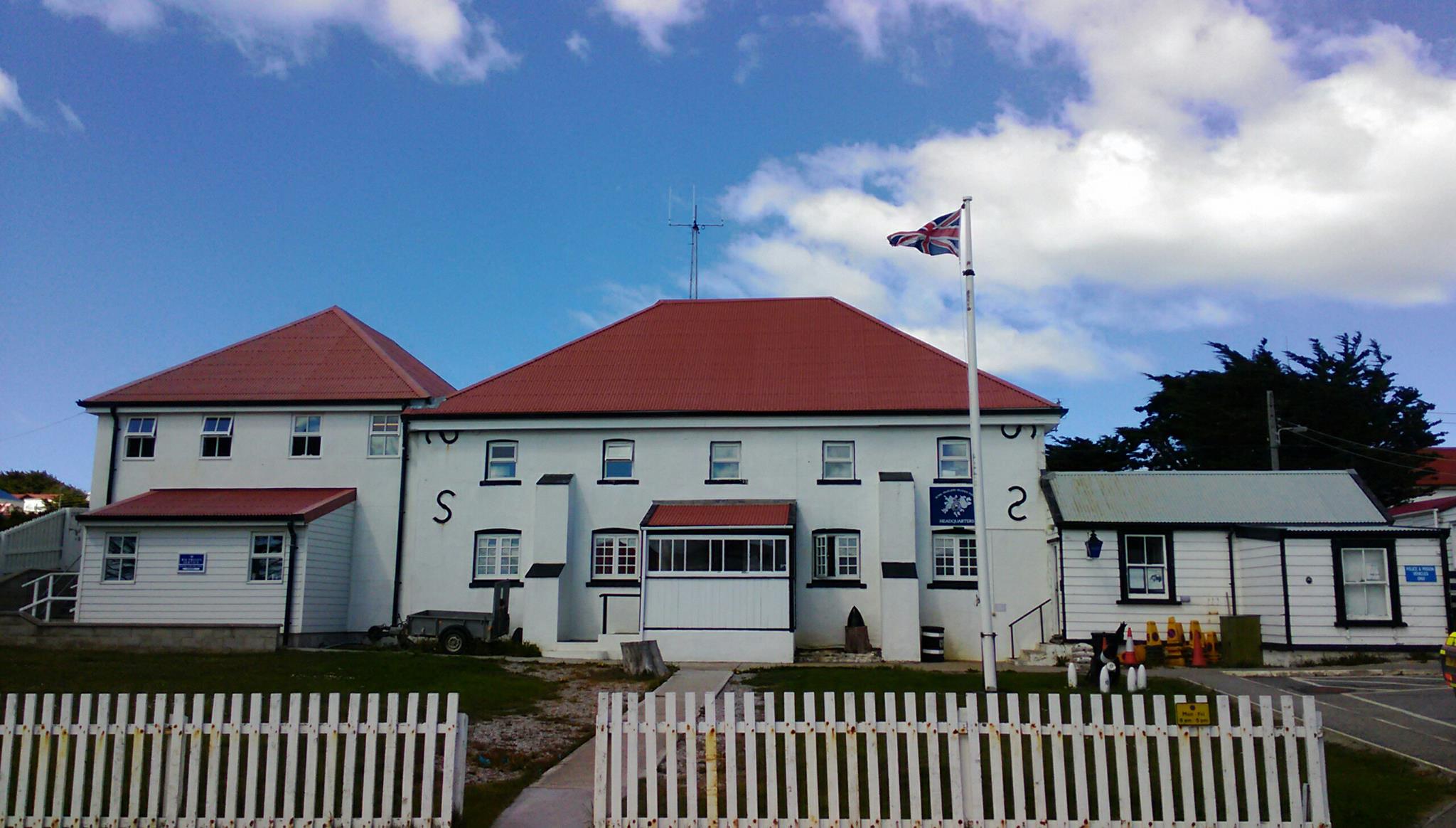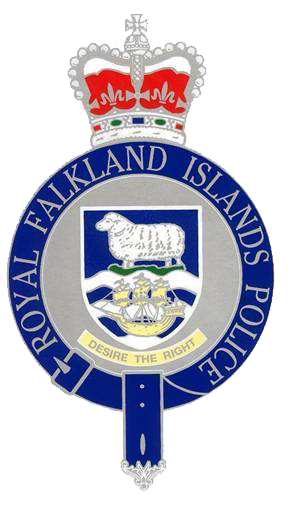History


In the early days of the Falkland Islands law was enforced with the assistance of the Royal Navy. During the construction of Stanley a small wooden bridewell was attached to the barrack building, which also housed the court room and the magistrate’s office. The first stipendiary magistrate was appointed in 1845 and soon recommended that a body of 12 constable be enrolled.
In October 1846 the Constables Ordinance was enacted and on 1 November Francis Parry was appointed the first Chief Constable of the Falkland Islands Police.
The new force consisted of three officers; the Chief Constable, the Gaoler and the Night Constable. The officers were supported, when necessary, by Special Constables and the Royal Sappers and Miners.
The police force succeeded in maintaining law and order until the mid 1850s, when concerns increased about the number of visiting ships and the behaviour of the crews. At this time the night constable was replaced by a military guard.
The Falkland Islands Police continued to operate, in a somewhat haphazard manner, for another 20 years but struggled with recruitment. In 1878 four trained officers arrived from the Metropolitan Police, complete with uniforms and equipment to train local recruits. By 1900 the force had grown to seven officers and now included a constable posted to Fox Bay.
In the 1920s, with the rise of the whaling industry in South Georgia, one constable was posted to Grytviken and another to the Jason Islands, to keep watch for Canadian seal poachers. From the 1920s through to the 1960s, records show a stable manning situation with many of the officers serving for significant periods. During the 1970s it became usual for younger constables to work in Stanley during the winter months before returning to camp for farm work in the summer. The first female officer, Rose Livermore, was appointed in 1976.
The invasion by Argentine military forces in 1982 interrupted normal police operations. The Chief Officer, Supt Lamb, was removed from office and returned to Britain alongside Governor Hunt. A few days after his departure a radio message from him was broadcast. In the rush and confusion he had forgotten that there was a prisoner in the cells and he asked if someone would kindly let him out!
The rest of the police force was dispersed and only PC Livermore remained in post during the occupation. His activities were severely curtailed by the Argentine authorities, he was how ever able to ensure that Falkland Islanders arrested were released as quickly as possible, he was later awarded the Colonial Police Medal.
The police station was occupied by Argentine military police, all police records were either destroyed or taken and on 11 June 1982 the building was hit by a missile launched from a British helicopter. The station was severely damaged, most of the front of the building and half of the roof was destroyed.
Following the liberation a small team of Metropolitan Police officers were seconded to the islands. At the end of their tour of duty they were relieved by teams drawn from a variety of English and Welsh forces, each serving six month secondments, until the end of 1985. In 1987, following a period of local and international recruitment, the force was increased to 12 officers. By 1994 the force included 17 police officers, 3 civilian support staff and 10 part time reserve constables.
In 1992, following an inspection by the Deputy Inspector General of Dependent Territories Police, Her Majesty Queen Elizabeth II graciously granted the force the “Royal” prefix in recognition of 146 years of loyal service to the Crown and of the professional standards achieved by the force in the 10 years since its virtual destruction by the Argentine occupation.
The Royal Falkland Islands Police now. Photoraph taken 2020.


